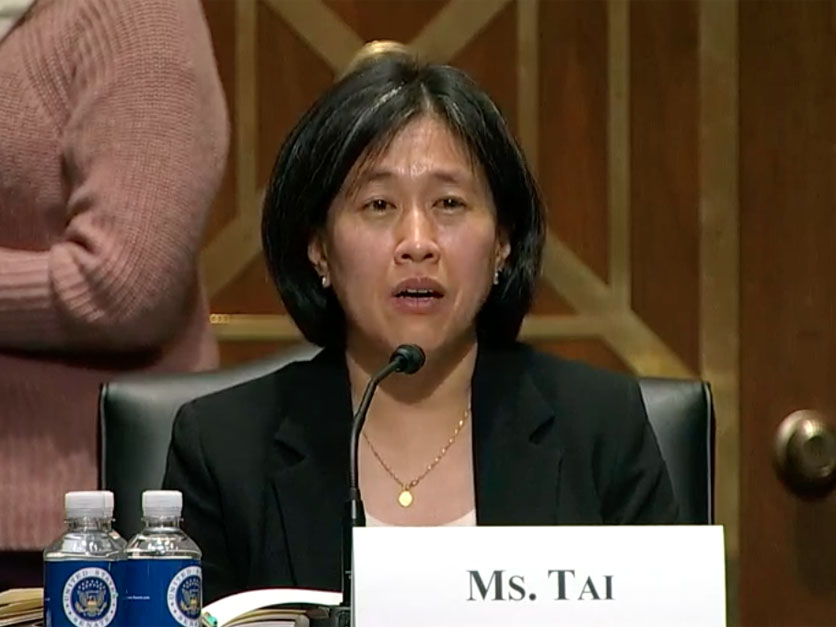The Biden administration wants a better trade remedy than the nearly 60-year-old Section 232 tariffs that the Trump administration used to counter imports of foreign steel and aluminum in the name of protecting national security, U.S. Trade Representative Katherine Tai told lawmakers Wednesday.
While effective, the use of the 232 tariffs sparked retaliation from China, the European Union and elsewhere, and U.S. farmers are still bearing the brunt of those reprisals. China hit the U.S. with $3 billion worth of retaliatory tariffs on commodities such as pork, oranges, walnuts, dairy and broccoli.
Those Chinese retaliatory tariffs range from 15% to 25% and continue to take a toll on U.S. exports of commodities like almonds and apples.
“We do need new tools, in my opinion,” Tai told the Senate Finance Committee in a nearly three-hour hearing on the Biden administration’s trade policy. “Section 232 is a statute from 1962, created at a very different time, long before the (World Trade Organization) was founded. … What I would propose is that we need 2021 tools for addressing the 2021 challenges we have rather than relying on 1962 tools and retrofitting them for the challenges we have now.”
Countries such as Canada and Mexico howled at the imposition the imposition of 232 tariffs, charging that the claim of a national security threat was ridiculous – especially because the U.S. is a major exporter of steel to Canada.
Tai appeared to acknowledge those criticisms, but at the same time said she supported the Trump administration’s use of the 232 tariffs. The tariffs were lifted on Mexico and Canada, but remain on China and the EU.
“Part of the tensions that have risen over this important trade remedy is the discordance between the authority provided and the nature of the problem we’re dealing with,” Tai said. “The steel and aluminum tariffs that have really roiled our economy were necessary to address a global over-capacity problem, driven largely but not solely by China.”
She also stressed that the USTR was still committed to using them in the near term to protect the U.S. steel and aluminum industries.
“Yes, clearly we have a commitment to being a strong country that is able to produce steel for itself,” she told Sen. James Lankford, R-Okla.
Tai did not provide any proposals on how to replace the 232 tariffs, even when asked directly by Lankford. Instead, she said the USTR was open to suggestions from lawmakers on how to alter it.
“I am open to improving and perfecting the tools that we have to make them more effective,” she said.
Lankford pressed Tai to let lawmakers and industry know the Biden administration’s intentions as soon as possible, but Sen. Pat Toomey, R-Pa., demanded that the tariffs be scrapped completely.
“We know for a fact that the previous administration abused this authority and claimed it was for national security when it was not,” Toomey said. “The idea that we should leave it around for other administrations to similarly abuse this power … would be a big mistake.”
Sen. Robert Casey, D-Pa., simply thanked Tai for her continued support of the tariffs protecting steel and aluminum producers.
For more news, go to www.Agri-Pulse.com.


